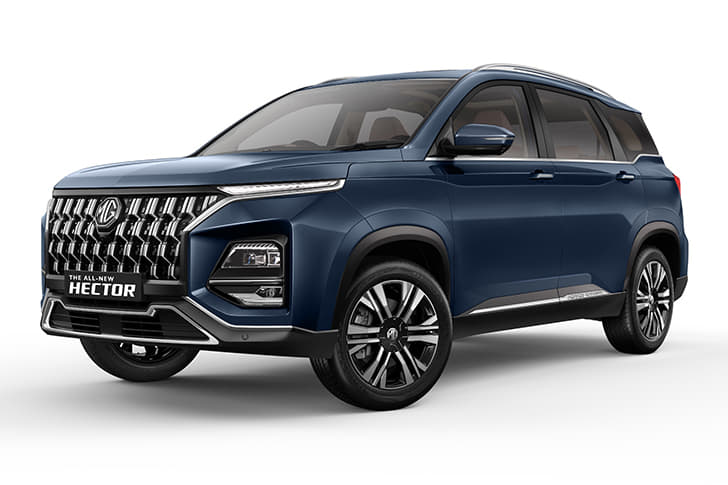China’s Great Wall Motors officially signed a share sales and purchase agreement with General Motors to acquire its production facilities in Rayong, Thailand just three days ago, on September 30 to be precise.
In the process, the Chinese SUV maker will now gear up to make Thailand its ASEAN production base for domestic and export of “new energy vehicles and internal-combustion engine models”. It had announced its intent to acquire this plant from GM in February, this year.
- Great Wall Motors’ (GWM) to purchase GM’s Rayong facility in Thailand
- India plans on hold due to tensions along border with China
- GWM’s India investments stuck until tensions reduce
What is now remaining in Great Wall Motors’ Asia strategy is to wrap up the India story, where, once again, the buyout deal is with GM for its plant in Talegaon, near Pune. Talks were finalised in January, just weeks before the Delhi Auto Expo where the company showcased its Haval range of SUVs.
Incidentally, this was also the time when COVID-19 was already making the news in China and there was some degree of paranoia at the Auto Expo with people sporting masks. Yet, the bigger obstacle for Great Wall Motors was to follow later, in the form of the current face-off at Ladakh, between Indian and Chinese troops, which has pretty much derailed its plans.
For now, India is in no mood to welcome investments from China which means Great Wall Motors has no choice but to grin and bear it. GM, likewise, has no choice in the matter and will just have to wait before it bids a complete adieu to India.
“Whether one likes it or not, politics and economics go hand-in-hand and given the current mood, any talk of China is bad news,” says an industry observer. Eventually, as tempers cool down and peace prevails again at Ladakh, things will get back on course but there is no telling when this will happen.
GM, it may be recalled, already kicked off its India exit plans three years ago by selling its other plant in Halol, Gujarat, to SAIC Motor Corp, its long-term Chinese ally. It also decided to stop retailing cars and decided to focus on exporting vehicles from Talegaon.
It was only a matter of time before GM would pull down the curtains on this facility too and rumours began doing the rounds that Groupe PSA of France was among the interested buyers. Finally, Great Wall Motors announced its intent to acquire the GM facilities in Talegaon and Rayong in Thailand, earlier this year.
Clearly, the company sees tremendous potential in India and has doubtlessly been encouraged by fellow Chinese automaker, SAIC’s good showing with the Hector SUV. SAIC was clever enough to front face MG Motor, the British automaker, it had acquired some years ago, as part of its brand strategy for India and other overseas markets.
Clearly, SAIC had done its homework well in the first outing with GM, soon after the global slowdown of 2009 when it threw a lifeline to the American carmaker in order to salvage its India innings. There were plans to launch jointly developed cars as well as the Wuling series of pickups but nothing really materialised.
When GM decided to shut shop in India, along with a host of other markets while choosing to focus solely on the US, China and Latin America, SAIC stepped into the picture for the Halol plant. It wasted little time in revamping the facility and then pulled out all the stops to launch the Hector which soon caught the fancy of the market. More importantly, it ensured that the MG badge would subsume any kind of Chinese brand connect with Indian customers for obvious reasons of the ‘cheap price tag’ association which is prevalent in consumer goods.
By virtue of its sheer size and presence in China, Great Wall Motors, would have had reasons to feel confident about its own SUV play in India, except that everything has come to a standstill right now. Another Chinese automaker, Changan Automobile, is also waiting and watching as tensions continue to simmer along the border.
As for its Thailand foray, Great Wall Motors plans to begin production in the first quarter of 2021 and is keen on transforming the country’s automotive industry as part of its vision to be a “global mobility technology company”.
In a statement, Elliot Zhang, President, Great Wall Motors, ASEAN & Thailand said, “Rayong would become a smart factory while showcasing the company’s expertise and capability in SUV and pickup truck production.” This would include advanced powertrain technologies which would help produce internal combustion engines and electric vehicles.
Great Wall Motors has 10 R&D centres in seven countries while operating 15 factories worldwide. According to the company, the Thai production hub will have a capacity of 80,000 units per annum. The Asia picture will be complete once GM’s Talegaon facility comes into the picture but till that happens, Great Wall Motors will have no option but to be in wait-and-watch mode.

































